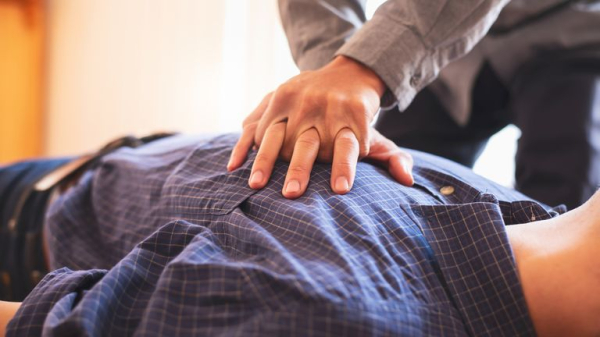Women less likely to be given CPR in public than men

Women are less likely to be given CPR if they have a cardiac arrest in public than men, according to new study.
A team of Canadian researchers examined 39,000 cardiac arrests that took place outside a hospital from 2005-2015 in Canada and the US.
They found that only 54% of people who suffered a cardiac arrest in a public place were given cardiopulmonary resuscitation (CPR), and women were 28% less likely to receive CPR compared to men.
However, in homes and other private places gender did not appear to be linked to whether or not a person received CPR.
With every 10-year age increase, women were 3% less likely to be resuscitated, whereas men were around 9% less likely.
The NHS website says full CPR is a combination of “chest compressions with rescue breaths”.
Dr Alexis Cournoyer, from Hopital du Sacre-Coeur de Montreal in Canada said: “We don’t know why this is the case – it could be that people are worried about hurting or touching women, or that they think a woman is less likely to be having a cardiac arrest.
“In an emergency when someone is unconscious and not breathing properly, in addition to calling an ambulance, bystanders should give CPR – this will give the patient a much better chance of survival and recovery.
“Our study shows that women experiencing a cardiac arrest are less likely to get the CPR they need compared to men, especially if the emergency happens in public”
According to the British Heart Foundation (BHF), there are more than 30,000 out-of-hospital cardiac arrests in the UK every year, with less than one in ten people surviving the emergency.
The NHS says anyone giving CPR should press down on the chest of someone who is unconscious and not breathing normally by 5 to 6cm (2 to 2.5 inches) at a rate of 100 to 120 times a minute until an ambulance arrives.
After every 30 chest compressions, two rescue breaths into the victim’s mouth should be given.
